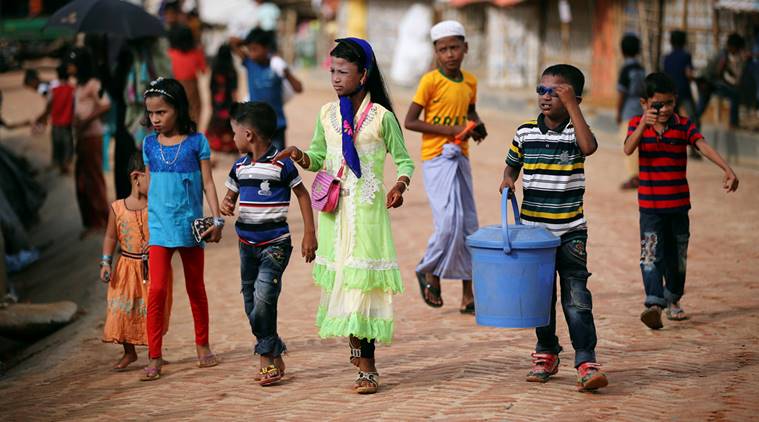Rohingyas mark anniversary as ‘black day’; community sees little hope for return
August 25, 2017 marked military raids across Rakhine state in Myanmar which the United Nations dubbed 'ethnic cleansing'. A number of Rohingya refugees fled the country on foot or by boat to neighouring countries.

Rohingya refugees fled the country, one year ago. (File)
Nearly a year after 700,000 Rohingyas fled from their Myanmar homeland due to a deadly military crackdown, the community on Sunday marked the day as ‘black day’. The Myanmar violence drove the persecuted minority into Bangladesh, thus making them stateless with a grim future.
August 25, 2017 marked military raids across Rakhine state in Myanmar which the United Nations dubbed ‘ethnic cleansing’. A number of Rohingya refugees fled the country on foot or by boat to neighbouring countries.
1m 6s

Letters connect Myanmar's separated Rohingya families
Scraps of paper carried between prisons in Myanmar and the camps by the International Committee of the Red Cross are a rare source of hope for families torn apart by the largest and fastest refugee influx in the region in the past twenty years, the refugees say.
As the day drew close, Rohingya refugees in Bangladeshi camps in Cox Bazar district vowed to mark the ‘black day’ in their lives with prayers, speeches and songs. The district which became home to one of the world’s largest refugee settlement is still under immense pressure as the latest entrants into the camps furthered the number of refugees in the area to nearly a million.
Abdul Malek, a 27-year-old refugee who fled an attack on his village last year, said the plight of the Rohingya was far from over. “This one year is just the beginning of many more to follow,” he told AFP in a refugee camp in Cox’s Bazar.
There have been continuous talks between Myanmar, Bangladesh and the United Nations, however, only few signs indicating that it is time for Rohingyas to go home any time soon. The UN believes that Myanmar is not yet a safe place for the Rohingya refugees.
The UN and international rights groups say conditions are not ready for them to go back. “It may be decades until they can safely return to Myanmar, if ever,” Medecins Sans Frontieres head of mission in Bangladesh, Pavlo Kolovos, said in a statement.
Nobel Prize-winning leader of Myanmar, Aung San Suu Kyi defended her government’s actions earlier this week saying that Rohingyas remain a serious threat to the country, which has further tarnished her image amidst the crisis.
(With AFP inputs)











































No hay comentarios:
Publicar un comentario